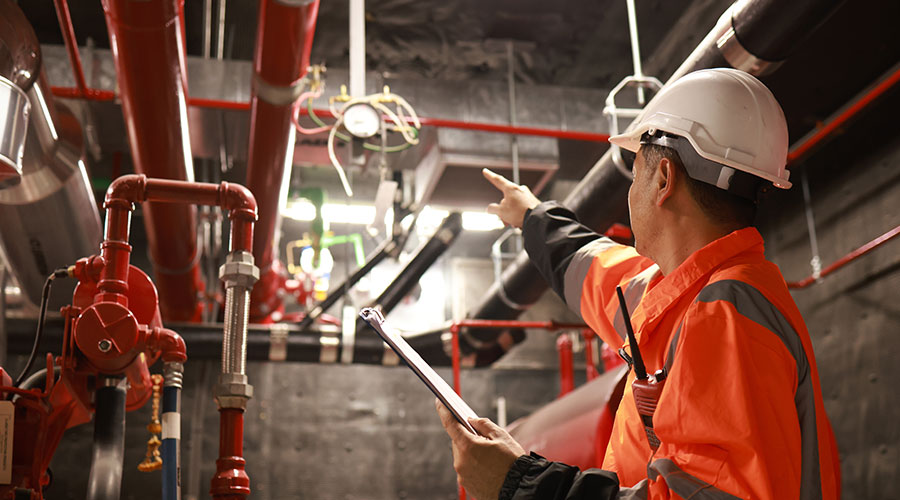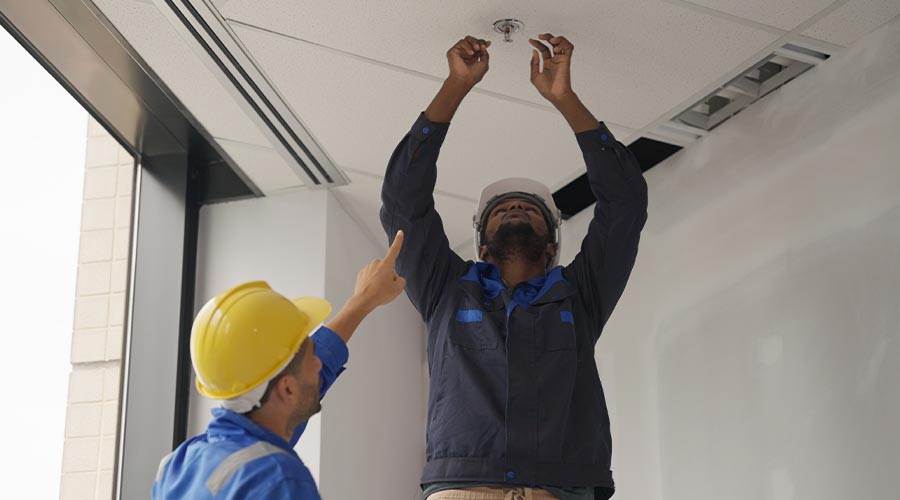Identifying Problems with Fire Alarm Systems
What to do if the fire alarm system is impaired.
When it comes to fire alarms, it is important that facility managers review the operation of their building as it is currently being used. Use that information address the following questions:
- Has the construction or occupancy use changed since the fire alarm system was installed?
- Did any building modifications cause the existing system to be non-code compliant?
- Are there portions of your building that need to be redesigned from a fire alarm perspective due to occupancy use?
Answers to these questions can answer whether it is time to replace a system. It also may help identify problems with the current system.
This Q&A series covers questions relating to ongoing maintenance and system replacement of fire alarm systems in accordance with NFPA 72. Following a testing and maintenance plan will increase the life of the system and provide the optimum return on investment.
What do I need to do if the fire alarm system is not working?
If you discover that your fire alarm system is not working, you must immediately incorporate a fire watch and follow the impairment procedures outlined in chapter 10 of NFPA 72.
You are always required to repair the system and place it back in a code-compliant status.
What is considered an impairment to a fire alarm system?
An impairment to a fire alarm system is any condition that affects the ability of the system to provide the intended life safety of the system. For example, a defective smoke detector in a system with fifty other smoke detectors operational and protecting the occupants would not be considered an impairment. That is a single deficiency. However, if a system is served by two signaling line circuits (SLCs), a short circuit occurring on one SLC would mean that half of the system is out of service. The latter would be considered an impairment.
How does NFPA 72 require me to address an impairment to my fire alarm system?
Impairments to fire alarm systems are often the underlying reason for large losses because they are not corrected immediately or within a reasonable time from notification of the impairment. There are various kinds of impairments, both planned and unplanned. A planned impairment of a fire alarm system would occur when the system is being inspected and tested or to accommodate work in an area that has smoke detection that would be adversely affected by the work.
Mitigating measures for impairments often required by the AHJ include a full fire watch throughout the building; however, each system and building will be evaluated on its own merits before implementing these measures.
Does NFPA 72 require me to notify the fire authorities if my system is impaired?
NFPA 72 requires that the system owner be notified whenever a system is impaired, and the service provider must report to the AHJ any system that is out of service for more than 8 hours.
The supervising station must also report to the AHJ any system for which required monitoring has been terminated.
Does NFPA 72 require me to correct ground faults?
Yes, NFPA 72 requires that all faults be corrected in a fire alarm system.
A ground fault occurs when one of the conductors of any circuit touches the ground. All fire alarm systems being sold today will produce a ground fault trouble signal along with an LED indicating a ground fault. Some of the more sophisticated systems may even indicate whether the ground is occurring on a positive or negative leg of a circuit.
Most circuits will still perform properly even if there is only a single ground fault. If the system has been installed for some time and the ground fault has just made itself known, there is a likelihood that someone working in the vicinity of a fire alarm device or junction box may have caused the ground fault.
Ground faults can also be caused by water intrusion into a fire alarm device or junction box. In any case, a ground fault indication should be addressed immediately as it may indicate other circuit troubles as well. Also, a ground fault situation can worsen and become harder to troubleshoot as time passes.
Wayne D. Moore is a licensed professional fire protection engineer with over 45 years of engineering experience. Moore currently serves on the NFPA 72 Correlating Committee and Chapter 24 Technical Committee (past Chair), as well as being an editor of five editions of the “National Fire Alarm Code Handbook.”
Larry D. Rietz, is a NICET Level IV Certified fire alarm designer with more than 29 years of life safety industry experience. Rietz is Vice President and Global Service Line Leader for Fire Detection and Alarm for Jensen Hughes and serves on the NFPA 72 Chapter 24 and 12, 21, & 23 Technical Committees.
Related Topics:














